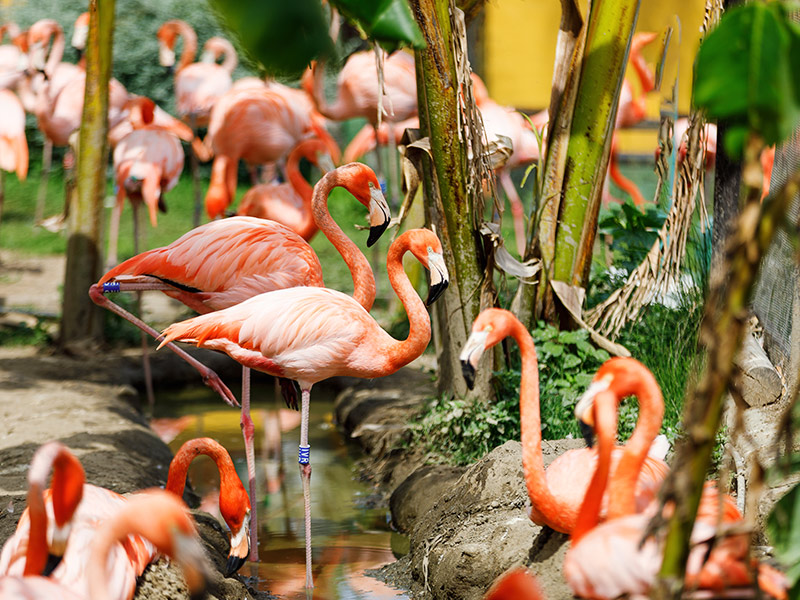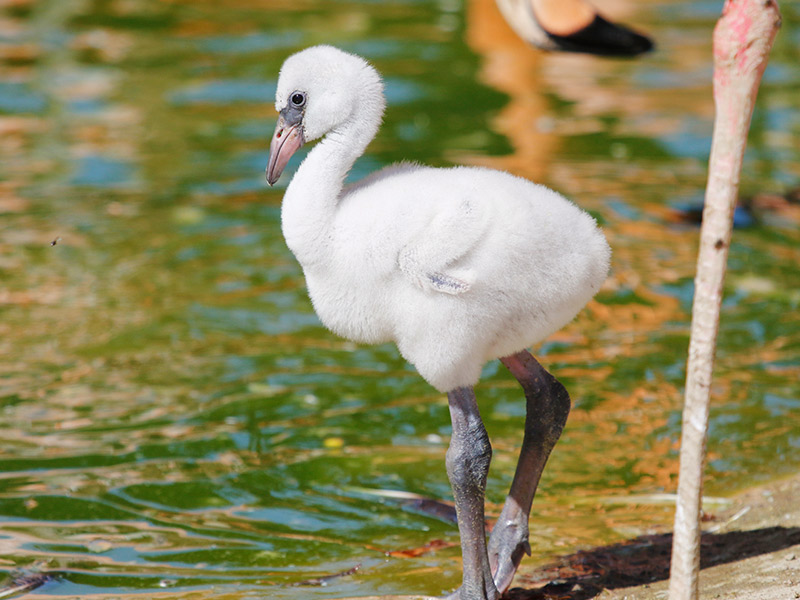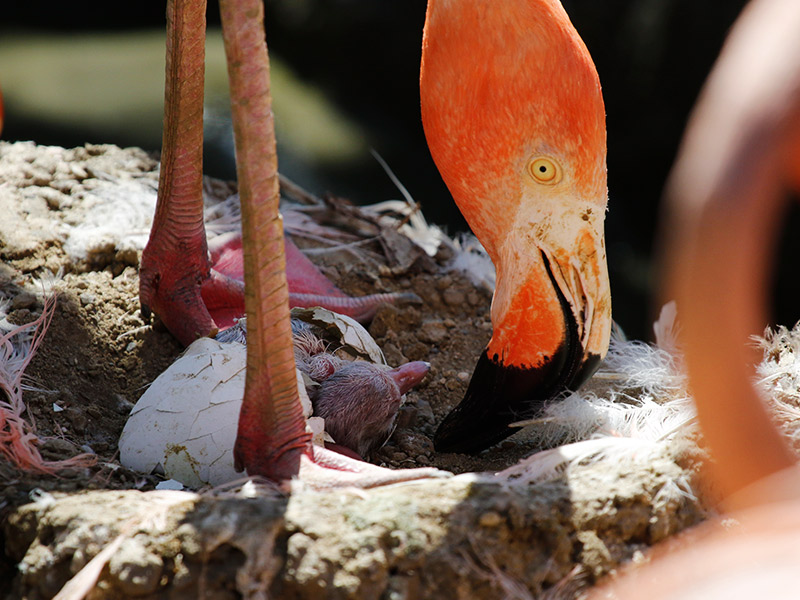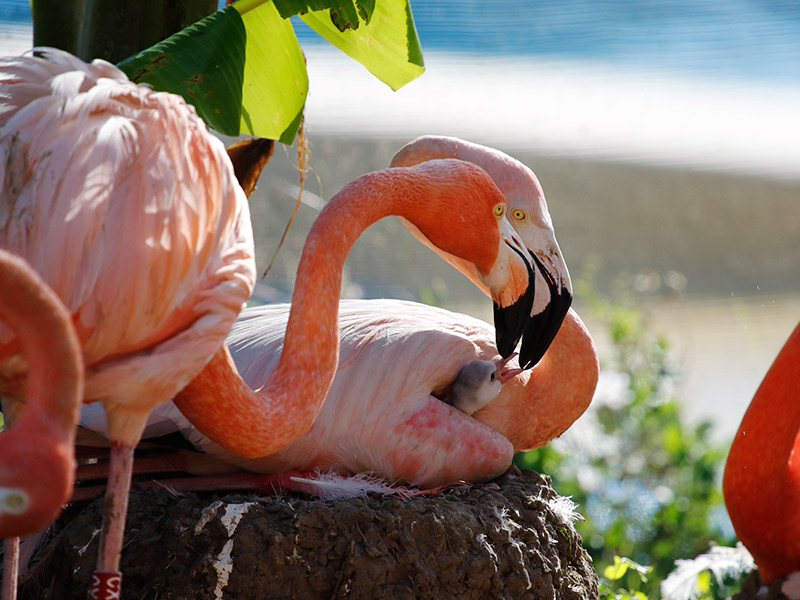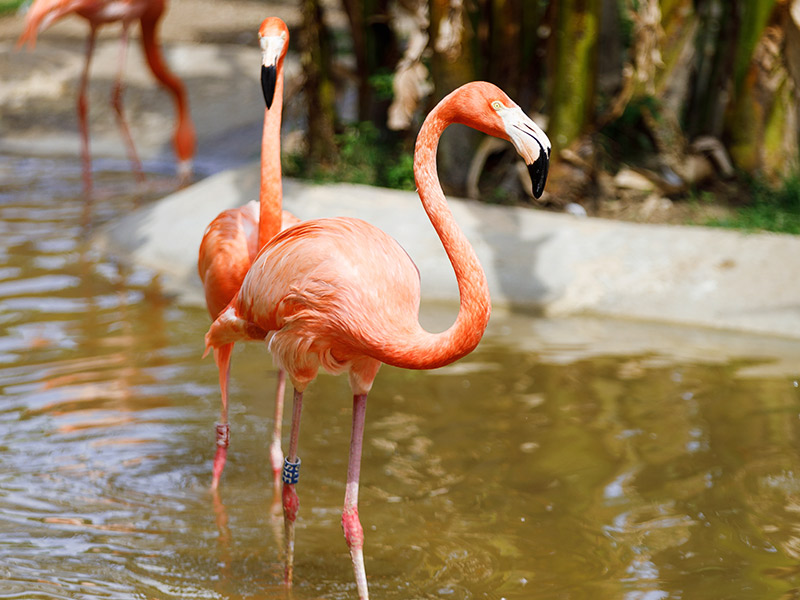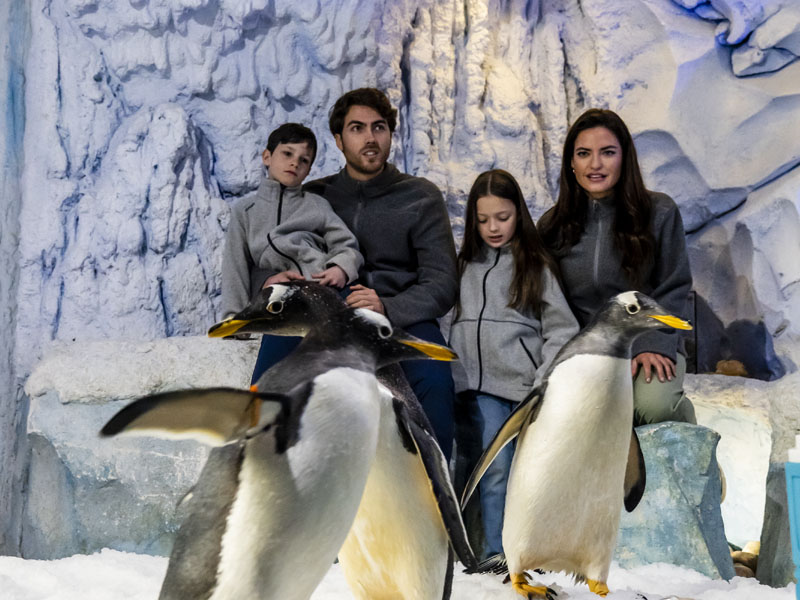Found on South America's northern coasts, along most of the coastlines around the Caribbean Sea, as well as on nearby islands in the Caribbean and Eastern Pacific.
They have a very long neck and often rest their heads on their bodies to avoid muscle fatigue. Their beaks have saw-shaped ends, which act as a strainer. Flamingos take a mouthful of water in their beak and then swish it around to pump the water out and filter out the tiny organisms on which they feed. Their long featherless legs cause them to lose a great deal of body heat when they are in the water, which is why it is common to see them resting on one leg in order to save energy. They are white at birth, turning brown as they grow. The brown colour is replaced by red as they add carotenoid compounds to their diet.
They live in large colonies, often numbering in the thousands. Flamingos communicate with each other mainly through vocalisations.
They are a monogamous species that stays with their mate until one of them dies and breeds once a year. After mating, they build a nest out of mud in the shape of a mound of about 30 cm with a sunken middle where they lay one egg, on rare occasions two, which will hatch after 28-32 days. Both parents are responsible for incubation and rearing.
Their main threat comes from pollution of the waters where they feed and crowds of humans visiting their nesting sites. Flamingos are a skittish species and a simple photo can upset them and cause them to leave the nesting area.
